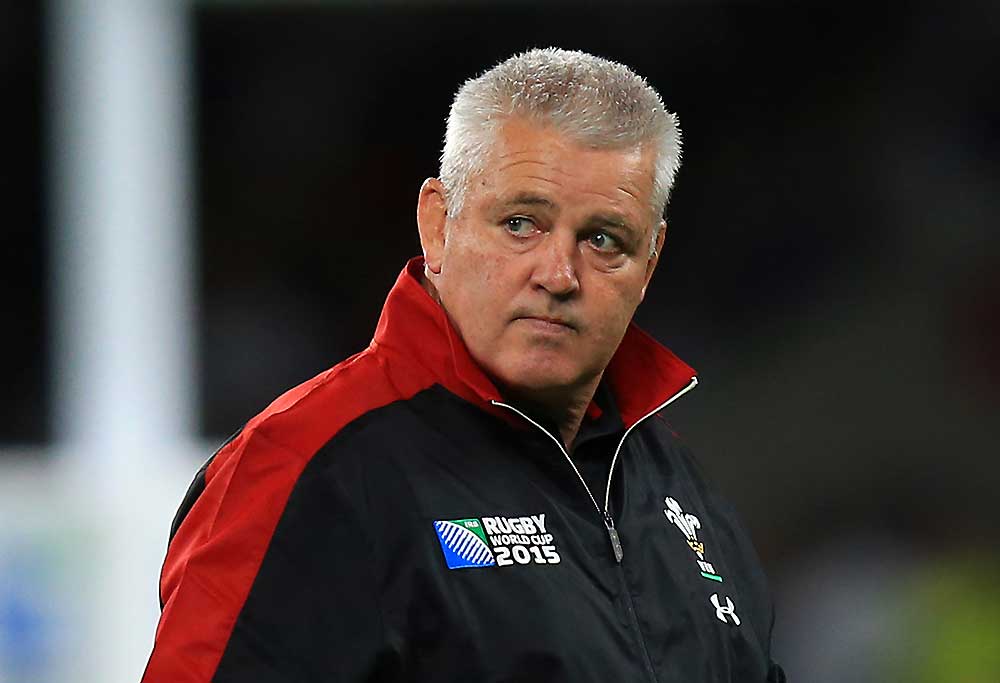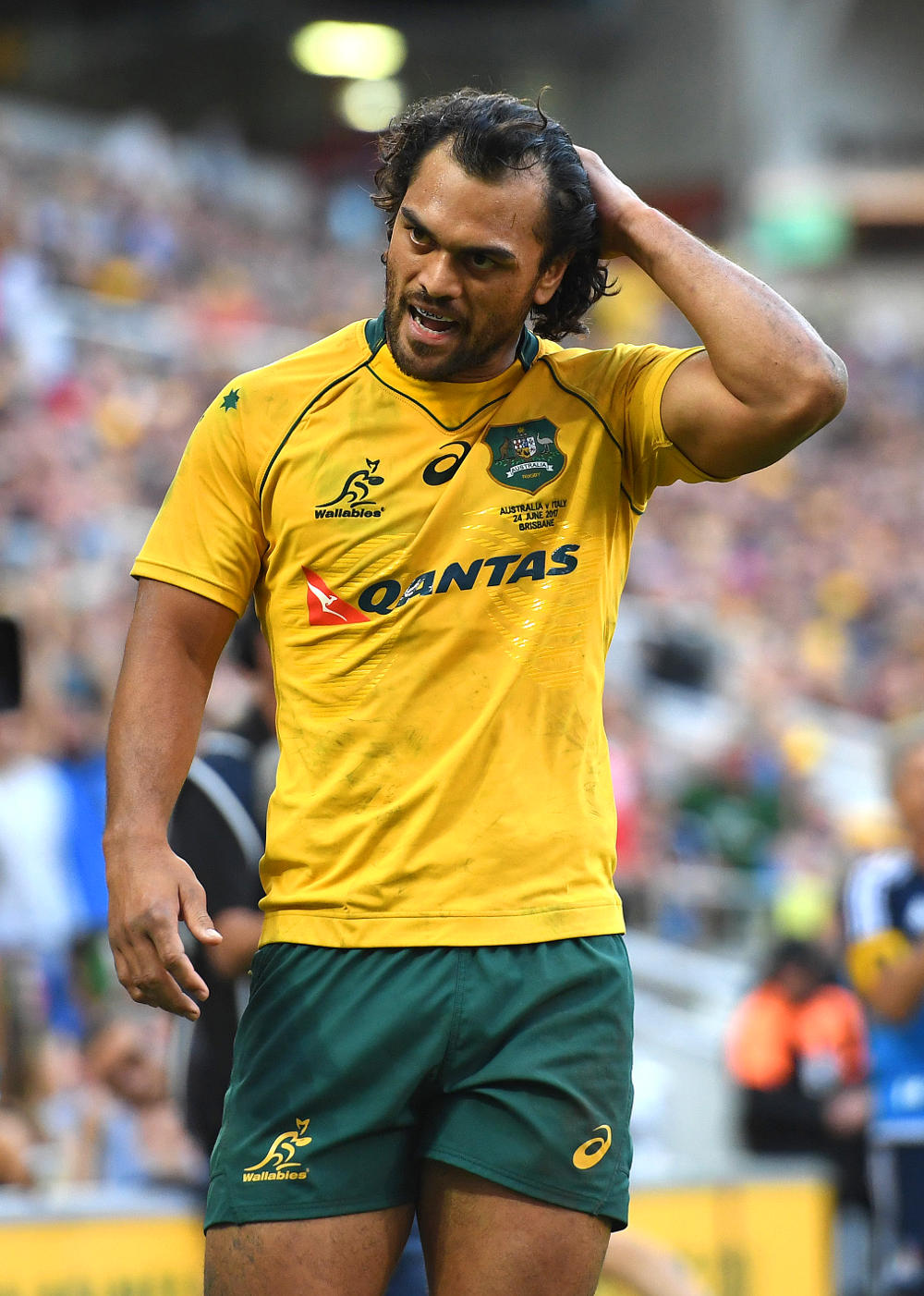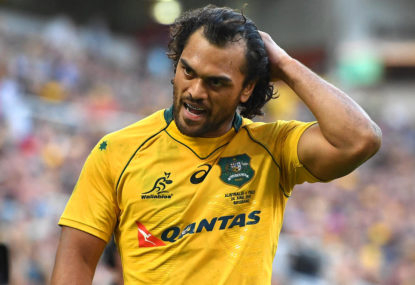As if Australian rugby fans didn’t need reminding, the All Blacks and Lions demonstrated how healthy the game is in other parts of the world, opening their eagerly awaited series with a thoroughly enjoyable contest of high quality, convincingly won by the home side 30-15.
Unlike what passes for Test rugby on the western side of the Tasman, this was a great advertisement for the sport. Both sides came to play and referee Jaco Peyper sagely kept a low profile and let them get on with it.
Although disappointed, the hordes of Lions supporters who trekked to the other side of the world will have downed their post-match beers happy in the knowledge that their team gave them their best, and also gave them one of the great Test tries, while acknowledging that sometimes, your best isn’t good enough.
But if they were surprised by the way the All Blacks approached the contest – as Warren Gatland seemed to be after the game – they shouldn’t have been. It is easy to fall into the trap of associating the All Blacks with recent high-profile annihilations of France (62-13), South Africa (57-15), Australia (42-8) and even Samoa last week (78-0), but there were plenty of clues pointing to how the All Blacks were going to approach this match.
There are certain matches where there is a discernable edge to the All Blacks’ build-up. These usually come after a defeat, such as to Ireland in Chicago last November, or when the opposition is overly talked up and potential All Blacks vulnerabilities are highlighted.
Almost always, these situations are met with Steve Hansen sharpening his team’s focus to direct-route attack and physicality, that transfers any perceived pressure back onto the opposition.
Where some saw the Lions’ impressive victories against the Maori and the Crusaders as a reason for the All Blacks to rely on their running game, Hanson saw the opposite. As a result, the All Blacks showed how the best way to tame a suffocating rush defence is not to stand deeper and try to go around it, but punch in close, to take the initiative and force those defenders to make defensive tackles, and more tackles again, and then a few more for good measure.
As a result, centre Sonny Bill Williams was increasingly able to step over the advantage line in the second half, and even on the occasions the All Blacks’ forward runners were caught flat-footed, they were never manhandled or rushed backwards under real pressure.

(AAP Image/Dave Hunt)
Those who assumed forward dominance for the Lions are in the same camp as people who bucketed Damien McKenzie, James Lowe and the Maori backs for their limp performance last week. Stop and compare the middle row combination of Brodie Retallick and Sam Whitelock versus Joe Wheeler and Tom Franklin, and there’s everything you need to know.
Aside from a shaky lineout, this was an authoritative performance from the Black pack. Direct and confrontational, they were superbly marshalled by halfback Aaron Smith who, time and again, made good decisions, choosing between close-in runners, wide passing and kicking only sparingly.
Key was the quality of the All Black’s cleanout. Every time a Lions player looked like claiming the ball at a tackle they were invariably muscled off it, allowing continuity and rhythm for the All Black attack.
For someone who hasn’t played for seven weeks, captain Keiran Read was in remarkable form, his thrust and work-rate outstanding. His only regret will be charging too hastily after what initially looked like a clever kick from Aaron Cruden, allowing Liam Williams to easily step him and open up the opportunity for what became a thrilling counter-attack try to Sean O’Brien some 85 metres away.
Although he won’t agree, Read failing to slow down and instead corral Williams towards the sideline did the match and the series a huge favour, showing the Lions that they do have the ability and presence of mind to create and finish off opportunities.
Gatland will be disappointed with all three tries conceded. For the first, Eliot Daly wandered infield by five metres or so, just as Jack Nowell did against the Blues, and was similarly embarrassed on the outside. To be fair, Daly may not have expected a hooker to pluck the ball off his bootlaces like Codie Taylor did, but the Lions wingers must surely know by now that they need to maintain width on defence, as Anthony Watson did when defusing a dangerous first half cross kick.

(Mike Egerton/PA Wire)
Rieko Ioane’s first try was a similar case of the Lions not learning from past mistakes, their outside defenders again drawn infield by a retreating scrum. His second was the ultimate irony. Williams failed to deal with a halfback kick from the base, something supposed to be the Lions’ own patented attacking weapon.
The series is now beautifully set up. The Lions have lost no admirers for the way they stayed in the contest and created some genuine try-scoring opportunities. They now know that they must up the physical confrontation metre in order to match the All Blacks at the breakdown and advantage line.
But lurking is the feeling that the All Blacks are desperate to play the series on their terms and stamp the remaining matches with more tries. Potentially, this will go one of two ways. It could open a window for the Lions to punish them if they get ahead of themselves and drop off their forward intensity, or deliver the flourish that will mark them as one of the greatest sides ever.
If the Auckland Test was fillet steak, the afternoon match between the Wallabies and Italy was a bowl of nachos; enjoyable enough but lacking real nutritional value.
The Wallabies dodged two bullets early, conceding a penalty when a try looked likely, and then escaping a try only because of the hint of an Italian toenail on the touchline.
What followed was not unexpected, the Wallabies failing to assert control of possession and territory, but able to take advantage of naïve and inconsistent Italian defence, to run in three tries by halftime.
What was less expected was a gaping hole opening up in centerfield, which allowed Michele Campagnaro to skip away for a smart try, pegging things back to 21-13 at the break.
After Sefanaia Naivalu crossed for his second try, making it one Karmichael Hunt passing assist off either hand, the game seemed safe on the scoreboard for the Wallabies. But, noticeably frustrated by their inability to assert field position and scrum parity, they pushed their luck too far. Errors by Israel Folau and Rory Arnold cost 14 points and propelled Italy back to 28-27.
Keyboards throughout Australia must have braced in anticipation of another angry thumping from fans as referee Matthew Carley finally lost patience with Toby Smith, and Italy went into the final seven minutes with all of the momentum and an extra man.

(AAP Image/Dave Hunt)
It proved to be a false dawn, the Wallabies successfully controlling the ball and avoiding potentially disastrous scrums, before replacement Abraham Steyn evened things up at 14 men each, with a dumb, cynical interference play given the circumstances.
Finally, things clicked, and tries to Bernard Foley and a galloping Reece Hodge restored the scoreboard to 40-27, saving Michael Cheika a phone call and ensuring the flow of criticism from fans remains run of the mill outpourings as opposed to a cyclonic deluge.
Whatever the reluctance to join the carping masses, it is hard to draw real positives from this Wallabies performance, keeping in mind that Italy, at the tail end of a long season, are ranked 15th in the world and were cannon fodder in this year’s Six Nations tournament.
Once again the Wallabies failed to convince that they have the inclination or skills to play an all-out attacking game, or the forward firepower to dominate up front. Caught betwixt and between, individual errors and self-doubt once again took hold, illustrative of a side not comfortable in its own skin.
For Italy, it was a big day out for ironman Simone Ferrari, who saw off both Wallaby looseheads. They are on their way to becoming a better team without having to rely on talisman Sergio Parisse for everything, although ironically, his absence was probably the difference between them having the nous to go on and win the game or not.
As if to capture the confused nature of the Wallabies performance, Fox Sports comments man Greg Martin couldn’t understand how the Wallabies could concede a try to a contested high kick, exclaiming “Dane Haylett-Petty, from West Australia, home of AFL!”
C’mon Marto, I know you’ve been to Melbourne before.
The popular takeaway for fans and media was to conclude that the Wallabies are in for a 50-point thrashing in August’s Bledisloe Cup opener, but frankly there’s little to be gained from stewing on that possibility.
For one, the match is eight weeks away. Why fret and get worked up about hypotheticals so far ahead of time?
The other reason is that, right now, the All Blacks are playing the Lions, in a cracking series that rugby fans have been waiting 12 years to enjoy. By all means numb the enjoyment and wallow in the Wallabies’ woes if that’s your thing, but there are far better things to focus on.
Will the Lions learn from their mistakes or are the All Blacks’ tacticians a step ahead of them?
Get in touch with a Daikin dealer today so you don’t sit and suffer through another cold winter while watching the rugby this year. Trusted by many and suitable for the Australian lifestyle, Daikin really is The Best Air Anywhere.
































































































